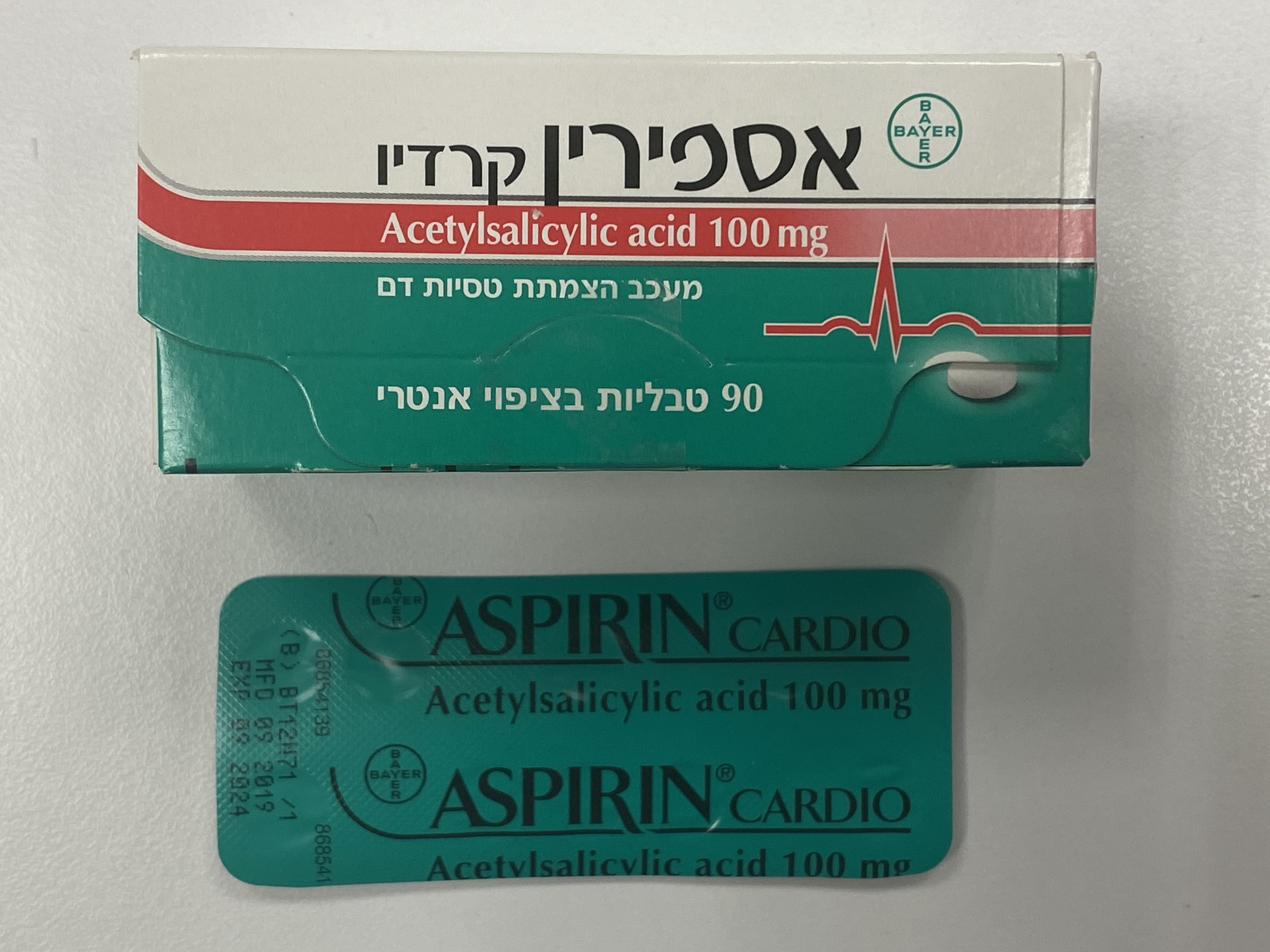Quest for the right Drug

אספירין קרדיו ASPIRIN CARDIO (ACETYLSALICYLIC ACID)
תרופה במרשם
תרופה בסל
נרקוטיקה
ציטוטוקסיקה
צורת מתן:
פומי : PER OS
צורת מינון:
טבליות עם ציפוי אנטרי : TABLETS ENTERIC COATED
עלון לרופא
מינוניםPosology התוויות
Indications תופעות לוואי
Adverse reactions התוויות נגד
Contraindications אינטראקציות
Interactions מינון יתר
Overdose הריון/הנקה
Pregnancy & Lactation אוכלוסיות מיוחדות
Special populations תכונות פרמקולוגיות
Pharmacological properties מידע רוקחי
Pharmaceutical particulars אזהרת שימוש
Special Warning עלון לרופא
Physicians Leaflet
Overdose : מינון יתר
4.9 Overdose
A distinction is made between chronic acetylsalicylic acid over-dosage with predominantly central nervous manifestations such as light-headedness, dizziness, confusion or nausea ("salicylism") and acute intoxication.
The cardinal feature of acute intoxication with acetylsalicylic acid is severe disruption of the acid-base balance. Even in the therapeutic dose range, respiratory alkalosis occurs as a consequence of increased respiration. This is compensated for by increased renal excretion of bicarbonate, which normalises the blood’s pH value. At toxic doses, the level of compensation is no longer sufficient and both the pH value and the bicarbonate concentration in the blood drop. The plasma PCO2 value may be temporarily normal. The apparent clinical picture is that of metabolic acidosis. However, the actual condition is a combination of respiratory and metabolic acidosis. The causes are: Respiratory restriction caused by toxic doses, acid accumulation, partially due to decreased renal excretion (sulphuric acid, phosphoric acid, salicylic acid, lactic acid, acetoacetic acid etc.) caused by impairment of carbohydrate metabolism. This is compounded by impairment of electrolyte balance. Major potassium loss occurs.
Symptoms of acute intoxication
Symptoms of milder acute intoxication (200 - 400 µg/ml):
In addition to disruption of the acid-base balance and electrolyte balance (e.g. potassium loss), hypoglycaemia, skin rashes and gastrointestinal haemorrhaging, hyperventilation, tinnitus, nausea, vomiting, impaired vision and hearing, headache, dizziness and confusion have been observed.
With severe intoxication (above 400 µg/ml), delirium, tremor, difficulty breathing, sweating, dehydration, hyperthermia and coma may occur.
In the event of intoxication with a fatal outcome, death usually occurs as a result of respiratory failure.
Treatment of intoxication
The therapeutic measures for treatment of intoxication with acetylsalicylic acid depend upon the extent, stage and clinical symptoms of the intoxication. They comprise the standard measures for decreasing absorption of the active ingredient, monitoring of the water and electrolyte balances, impaired temperature regulation and respiration.
Treatment is focused on measures to accelerate excretion and normalise the acid-base balance and the electrolyte balance. Infusion solutions of sodium hydrogen carbonate and potassium chloride and diuretics are administered. The urine reaction should be alkaline to increase the degree of salicylate ionisation and decrease the rate of back-diffusion to the tubules.
Monitoring of the blood values (pH, PCO2, hydrogen bicarbonate, potassium, etc.) is strongly recommended. In severe cases, haemodialysis may be necessary.

שימוש לפי פנקס קופ''ח כללית 1994
Antiplatelet aggregation agent
תאריך הכללה מקורי בסל
01/01/1995
הגבלות
תרופה שאושרה לשימוש כללי בקופ'ח
מידע נוסף
עלון מידע לצרכן
23.09.21 - עלון לצרכן אנגלית 23.09.21 - עלון לצרכן עברית 23.09.21 - עלון לצרכן ערבית 14.04.24 - עלון לצרכן עברית 23.07.24 - עלון לצרכן אנגלית 23.07.24 - עלון לצרכן עברית 23.07.24 - עלון לצרכן ערבית 24.07.18 - החמרה לעלון 03.08.20 - החמרה לעלון 18.07.21 - החמרה לעלון 20.03.14 - החמרה לעלון 08.05.24 - החמרה לעלוןלתרופה במאגר משרד הבריאות
אספירין קרדיו